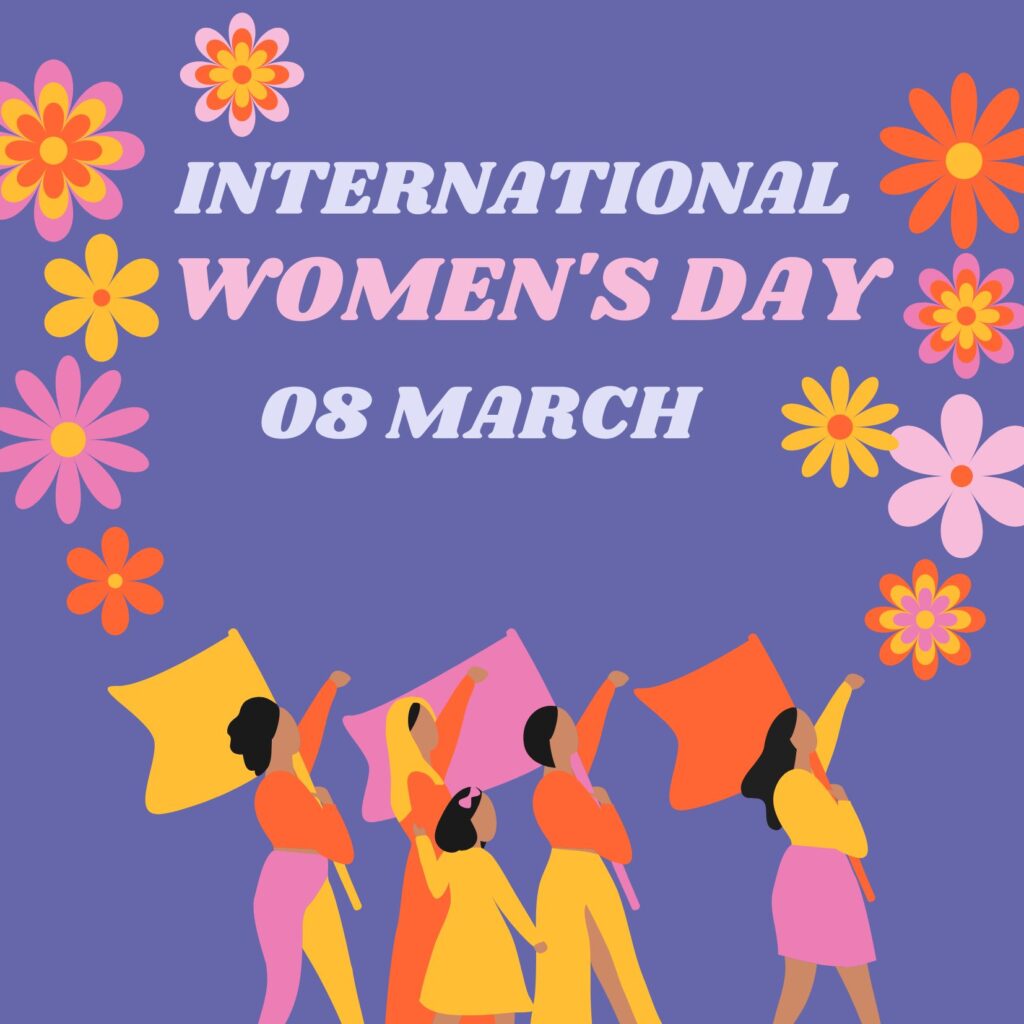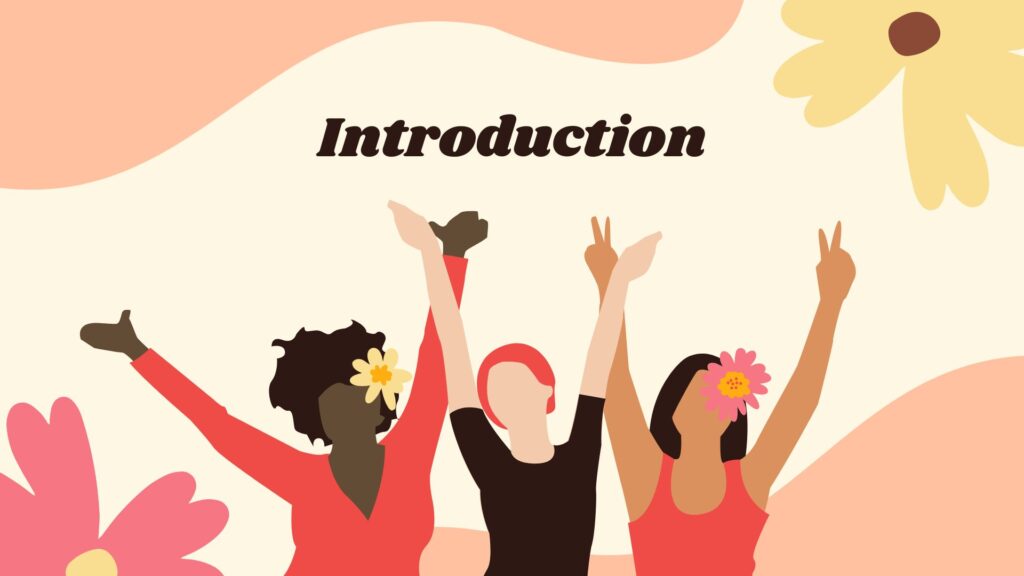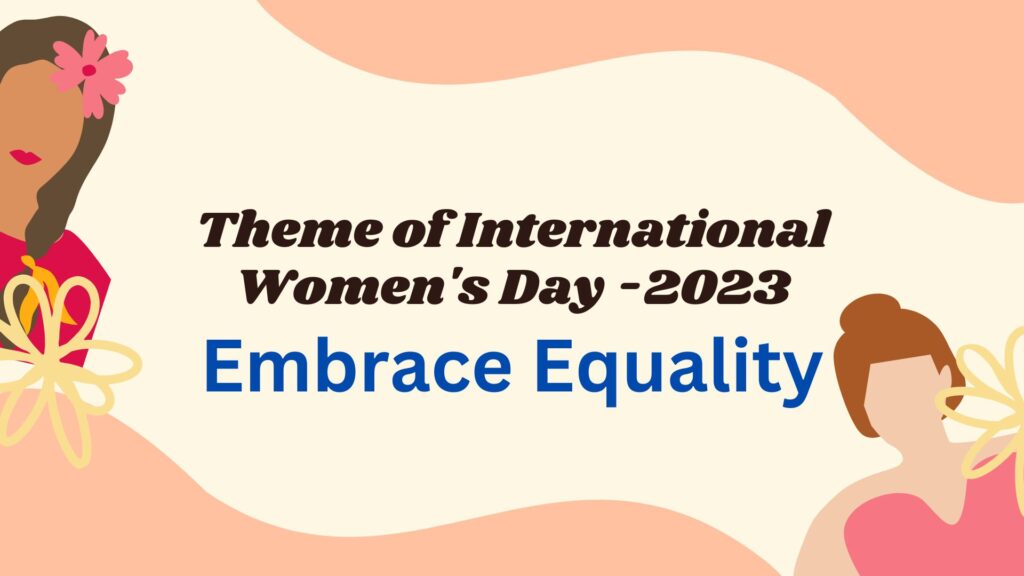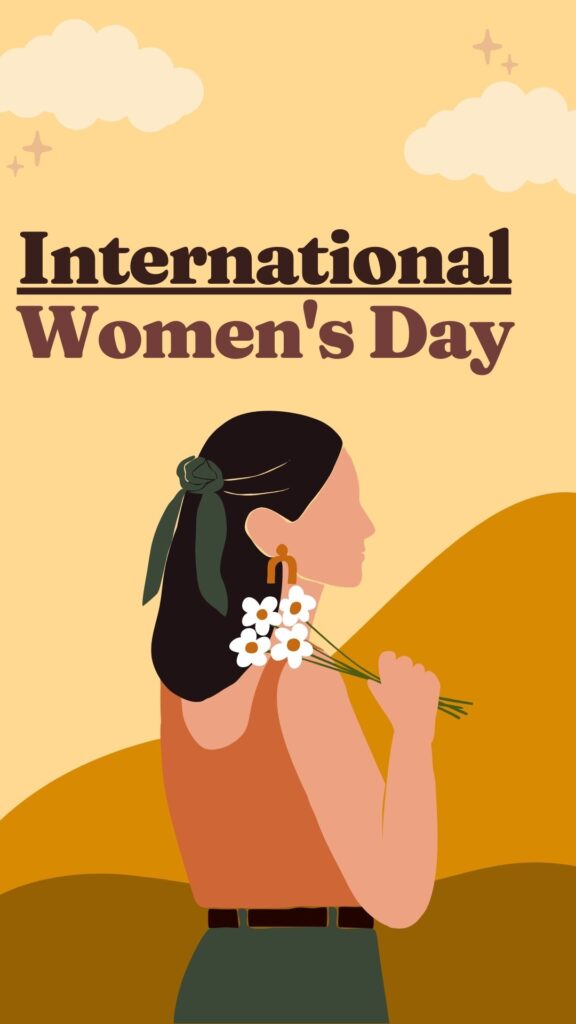
International Women’s Day, observed annually on March 8th, is a day dedicated to honoring the achievements and contributions of women around the world. It is a time to reflect on the progress that has been made toward gender equality, while also acknowledging the work that still needs to be done. The day serves as a reminder of the struggles that women have faced throughout history and the ongoing fight for equal rights and opportunities. It is a celebration of the strength, resilience, and determination of women, as well as a call to action to continue working towards a more just and equitable world for all.
Introduction: The Significance of International Women’s Day
International Women’s Day, observed annually on March 8th, is a day dedicated to celebrating the achievements of women and raising awareness about the ongoing struggle for gender equality. This day provides an opportunity to recognize the progress made towards gender equality, while also acknowledging the work that still needs to be done to ensure that women everywhere have equal access to education, employment, healthcare, and basic human rights.

The significance of International Women’s Day lies in its recognition of the contributions that women have made to society throughout history, in the face of systemic barriers and discrimination. From the suffragette movement to the #MeToo movement, women have been at the forefront of social and political change, fighting for their rights and the rights of others.
However, despite the progress that has been made toward gender equality, there is still much work to be done. Women continue to face discrimination and barriers in many areas, including the workplace, politics, and healthcare. Women also face higher rates of poverty and violence, making it all the more important to recognize the ongoing struggle for gender equality and to work towards a more just and equitable world for all women.
The History of International Women’s Day: How It All Began
International Women’s Day has a rich history that dates back over a century. The first National Women’s Day was observed in the United States on February 28, 1909, in honor of a strike by the International Ladies’ Garment Workers’ Union the previous year. It was a day to raise awareness about women’s labor rights and to advocate for suffrage.
In 1910, at the International Conference of Working Women in Copenhagen, Denmark, Clara Zetkin, a German socialist, proposed the idea of an annual International Women’s Day. The proposal was met with unanimous approval, and the first International Women’s Day was observed in Austria, Denmark, Germany, and Switzerland on March 19, 1911. Over one million women and men attended rallies and demonstrations, demanding the right to vote, to work, and to hold public office.
In the years that followed, International Women’s Day continued to be observed in various countries, with different dates and themes. During World War I, International Women’s Day was used as a platform to protest against the war and advocate for peace. In Russia, International Women’s Day was celebrated as a national holiday, and it played a significant role in the Russian Revolution of 1917.
In 1975, the United Nations officially recognized March 8th as International Women’s Day, and it has been observed globally ever since. Each year, International Women’s Day has a theme that highlights the ongoing struggle for gender equality and the achievements of women. The theme for International Women’s Day 2023 is “Women’s Health and Wellness: Achieving an Equal Future in a COVID-19 World.”
Today, International Women’s Day is celebrated in many ways around the world, from rallies and marches to cultural events and online campaigns. It is a day to honor the contributions of women throughout history and to continue the work toward gender equality.

The theme for International Women’s Day 2023 is “Embrace Equality.” This theme would emphasize the importance of recognizing and addressing the barriers and discrimination that women continue to face, while also celebrating the achievements and contributions of women throughout history. It would call on individuals and organizations to take action to promote gender equality in all areas of life and to support women’s empowerment and advancement. Ultimately, the theme of International Women’s Day 2023 will reflect the ongoing efforts towards achieving a more just and equal world for all women.
International Women’s Day 2023 Nari Sakti Quiz link
The Status of Women’s Rights: Progress and Challenges
Women’s rights have come a long way over the past century, but progress is still needed to achieve gender equality. In many parts of the world, women continue to face discrimination and violence, and their rights to education, employment, and healthcare are often restricted. However, there have been significant advances in recent years, such as the increased representation of women in political and leadership positions, greater awareness of gender-based violence, and improvements in maternal health. The ongoing struggle for women’s rights requires the concerted efforts of individuals, governments, and organizations to address the systemic barriers and inequalities that still exist and to create a more just and equal society for all. International Women’s Day 2023
The status of women’s rights has come a long way in the last century, but there is still much progress to be made. Women have gained the right to vote, access to education, and more employment opportunities. However, gender inequality is still prevalent in many areas of society, and women face significant challenges in achieving true equality. International Women’s Day 2023
One of the most significant challenges facing women today is the wage gap. Despite the fact that women now make up almost half of the workforce, they still earn less than men on average. This gap is even wider for women of color, who face both gender and racial discrimination. The gender wage gap not only affects women’s economic security but also perpetuates social and economic inequality. International Women’s Day 2023
Women also face significant challenges in accessing healthcare. In many parts of the world, women have limited access to contraception, maternal health services, and safe abortions. This lack of access to healthcare not only puts women’s health at risk but also limits their ability to participate fully in society.
Violence against women is another significant challenge that women face. This violence can take many forms, including domestic violence, sexual assault, and human trafficking. Women are disproportionately affected by these types of violence, which can have long-lasting physical, emotional, and psychological consequences. International Women’s Day 2023
In recent years, there has been a growing movement to address these and other issues facing women. Women around the world are speaking out about their experiences and demanding change. This movement has led to some significant progress, including increased awareness of gender-based violence and the need for more comprehensive healthcare policies. International Women’s Day 2023
However, progress has not come without its challenges. Women who speak out about gender inequality and violence often face backlash and even violence themselves. The #MeToo movement, for example, faced significant pushback from those who claimed that it went too far or unfairly targeted men.
Another challenge facing the women’s rights movement is the lack of political will to make meaningful change. In many countries, politicians are hesitant to support women’s rights for fear of losing conservative voters or facing pushback from more conservative religious groups.
The Theme for International Women’s Day 2023
Despite these challenges, there is still reason for hope. The growing momentum of the women’s rights movement has led to significant progress, and there is a growing recognition of the importance of gender equality. The UN’s Sustainable Development Goals, for example, include a goal specifically focused on achieving gender equality and empowering all women and girls.
In order to continue making progress, it is important that women’s rights are seen as a priority both by governments and society as a whole. This means not only supporting policies that promote gender equality but also challenging attitudes and beliefs that perpetuate inequality.
Ultimately, the status of women’s rights is complex and that requires a comprehensive approach. It requires addressing economic, social, and political factors that contribute to gender inequality. It requires supporting women’s leadership and empowerment, promoting inclusive and diverse policies, and combating harmful attitudes and beliefs about women.
The status of women’s rights is not a fixed concept, but rather an ongoing process of progress and challenges. While significant strides have been made, there is still a long way to go in achieving true gender equality. By working together and continuing to push for change, we can build a world where women’s rights are respected and upheld, and where every woman has the opportunity to thrive and reach her full potential.
Women in Leaders: Top 10 Women Leaders of all time
Cleopatra – the last pharaoh of ancient Egypt, is known for her intelligence, political prowess, and diplomatic skills.
Joan of Arc – a French military leader who played a pivotal role in the Hundred Years’ War and is revered as a national heroine in France.
Queen Elizabeth I – a legendary English monarch who presided over a golden age of arts, culture, and trade.
Harriet Tubman – an African American abolitionist and activist who led hundreds of slaves to freedom through the Underground Railroad.
Indira Gandhi – the first and only female Prime Minister of India, who led the country through tumultuous times and championed social and economic reforms.
Margaret Thatcher – the first female Prime Minister of the United Kingdom, who is remembered for her strong leadership style and conservative policies.
Benazir Bhutto – the first female Prime Minister of Pakistan, who fought for democracy and women’s rights despite facing numerous challenges and threats.
Angela Merkel – the first female Chancellor of Germany, who has led the country through economic and political crises and is known for her pragmatic leadership style.
Malala Yousafzai – a Pakistani activist for girls’ education and the youngest Nobel Prize laureate, who survived a Taliban assassination attempt and continues to advocate for education and human rights.
Kamala Harris – the first female, Black, and South Asian Vice President of the United States, who has broken barriers and inspired millions of women and girls around the world.
Celebrating Women’s Cultural Contributions: Art, Music, and Literature

Celebrating women’s cultural contributions in art, music, and literature is an important way to recognize and honor the diverse and impactful ways that women have contributed to these fields throughout history. From the groundbreaking writing of Jane Austen to the iconic paintings of Frida Kahlo, women have left an indelible mark on the cultural landscape. The musical compositions of women like Nina Simone and Beyoncé have helped to shape the sound of popular music, while writers such as Toni Morrison and Chimamanda Ngozi Adichie have opened up new avenues of storytelling and representation.
By celebrating these women and their contributions, we not only acknowledge their achievements but also inspire future generations of women to pursue their passions and make their own cultural contributions.
Intersectionality and Inclusion: Recognizing the Diversity of Women’s Experiences Nari Sakti Quiz link
Intersectionality is a term coined by Kimberlé Crenshaw in 1989 to describe the ways in which different forms of oppression intersect and overlap, resulting in unique experiences for individuals who face multiple forms of marginalization. For women, intersectionality is especially important because they often face discrimination based on not only their gender but also their race, ethnicity, sexuality, class, disability, and other social identities.
It is crucial to recognize the diversity of women’s experiences and ensure that inclusion efforts are intersectional. This means acknowledging that the experiences of women are not uniform and that women from different backgrounds may face different challenges and barriers. Intersectionality encourages a more nuanced and complex understanding of gender inequality and challenges us to address the root causes of discrimination and oppression.
One example of the importance of intersectionality is the gender wage gap. While it is well-known that women earn less than men on average, the gap is even wider for women of color, particularly Black and Latina women. According to the National Women’s Law Center, Black women earn only 63 cents and Latina women earn only 55 cents for every dollar earned by non-Hispanic white, non-Hispanic men. This is due to the intersection of race and gender-based discrimination, as well as other factors such as occupational segregation and lack of access to education and training.
Inclusion efforts must also consider the experiences of women with disabilities, who may face additional barriers to employment and other opportunities. According to the World Health Organization, women with disabilities are more likely to experience poverty, unemployment, and lack of access to healthcare and education. They may also face discrimination based on their disability and gender, as well as other intersecting identities such as race and sexuality.
Intersectionality also highlights the experiences of LGBTQ+ women, who may face discrimination based on their sexual orientation or gender identity in addition to gender-based discrimination. According to the National LGBTQ Task Force, LGBTQ+ women are more likely to experience poverty, lack of healthcare access, and homelessness than non-LGBTQ+ women. They may also face discrimination in employment, housing, and healthcare, as well as violence and harassment.
To ensure that inclusion efforts are intersectional, it is important to actively seek out and amplify the voices of women from diverse backgrounds. This can include hiring practices that prioritize diversity and inclusion, creating safe spaces for underrepresented groups, and involving community members in decision-making processes.
In addition, policies and practices must be evaluated through an intersectional lens to ensure that they do not inadvertently perpetuate discrimination or marginalization. For example, workplace policies such as parental leave may not be sufficient for single mothers or women who are primary caregivers for family members with disabilities. This can result in these women being forced to choose between caring for their families and pursuing career opportunities.
Finally, it is important to recognize and address the ways in which systems of oppression intersect and reinforce each other. For example, racism and sexism are often interconnected, and efforts to address one must also address the other. This requires a deeper understanding of the complex ways in which oppression operates and a commitment to dismantling these systems.
In conclusion, intersectionality is essential for recognizing the diversity of women’s experiences and ensuring that inclusion efforts are effective and equitable. By acknowledging the ways in which different forms of oppression intersect and overlap, we can work towards a more just and equitable world for all women.
Conclusion: Looking Forward to a More Gender-Equal World. International Women’s Day 2023

As we celebrate International Women’s Day and continue to strive for gender equality, it is important to recognize the progress that has been made while also acknowledging the work that still needs to be done. Intersectionality and inclusion are essential for creating a more equitable world for all women, and we must continue to challenge systems of oppression and promote diversity and inclusion in all areas of life. By working together and amplifying the voices of women from diverse backgrounds, we can build a more just and equitable society where all women have the opportunity to thrive
